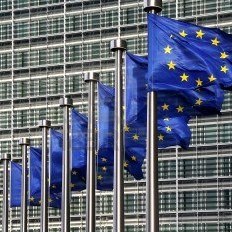“Europe doesn’t function!" Ulrique Guerot, one of the leading German voices in European affairs, made this emotional statement at a round table discussion (“Building a European Democracy: Mapping the Approaches”) convened by the European Council of Foreign Relations and the Mercator Foundation in Berlin.
Other participants were more moderate: for them Europe does function, but it is not popular any longer. Debate on the future of Europe would attract perhaps only a dozen of people in countries like France. Unsurprisingly, there is much populism and wishful thinking in European discourses on Europe.
The discussion on the future of Europe affects feelings of many pro-European Germans. They deem that it is time to put the German discourse back on the European track, but the very concept of Europe has be rethought and better explained. To some extent, this is a matter of communication and information sharing: for example, the Irish Ambassador to Berlin mentioned that most of the Germans are unaware of how much of its budget their country contributes to the EU programs, and tend to overrate the figures at least ten-fold.
The Polish historian Krzysztof Pomian was perhaps the most radical: “We have a fully-fledged crisis of democracy all across Europe. Look at Italy or Hungary where authoritarianism is still strong. Europe and democracy used to go hand in hand, but it is not necessarily the case todays, and this is a sign of future disaster.”
Another Polish intellectual, Jan Zelionka, presumed that people will not revolt against Europe, but they can just turn away from it. Legitimacy of the EU institutions can be partly dependent on economic growth, but in its absence, the key is trust, which is unfortunately missing. Many doubt that EU politicians are really interested in relying upon their peoples. The most expectable danger is the EU turning into a second edition of the Western Union that was a fake institution.
In many European countries feelings of vanishing sovereignty are relatively strong – as a colleague from Spain put it, people think that markets, Brussels (the EU Commission), Berlin (the leading economic actor), and Frankfurt (the site of European Central Bank) took pieces of it. In countries affected by financial crisis, governance is far from consensual.
With all this in mind, the panelists assumed that the EU has to more boldly intervene in national politics of its member states. In Spain, people commit suicides because of evictions caused by financial troubles – but where is the EU? Why are not member states monitored to the extent that accession countries are objects of monitoring? “This is just like discontinuing controlling professors after they got their positions,” one panelist said. Should Italy have to apply for its membership nowadays, it probably won’t pass the criteria of good governance.
In some sense, European integration was always “a project of hope.” Of course, there are those in Europe who still want to see it as a “normative power,” a source of democracy and human rights for – at least – its neighborhood. Yet this “thick” understanding of democracy is hardly operational. Europe has to start reviving its own democratic credentials with bringing politics back to the European stage – through, for example, strengthening political components in the European Parliament elections and in its daily functioning.
All this might have major implications for EU’s foreign policy, especially in its neighborhood. In the years to come, the EU will most likely be a more inward-oriented actor, with less vigor put in spreading its normative standards as undisputable condition for cooperating with others. Political scenes in many European countries will become more nationalist. All this will certainly represent a challenge for Euro-Atlantic security institutions and will open new possibilities for such external actors as Russia and China.
Andrey Makarychev is a Guest Professor at the Free University of Berlin, blogging for PONARS Eurasia on the Russia-EU neighborhood.










